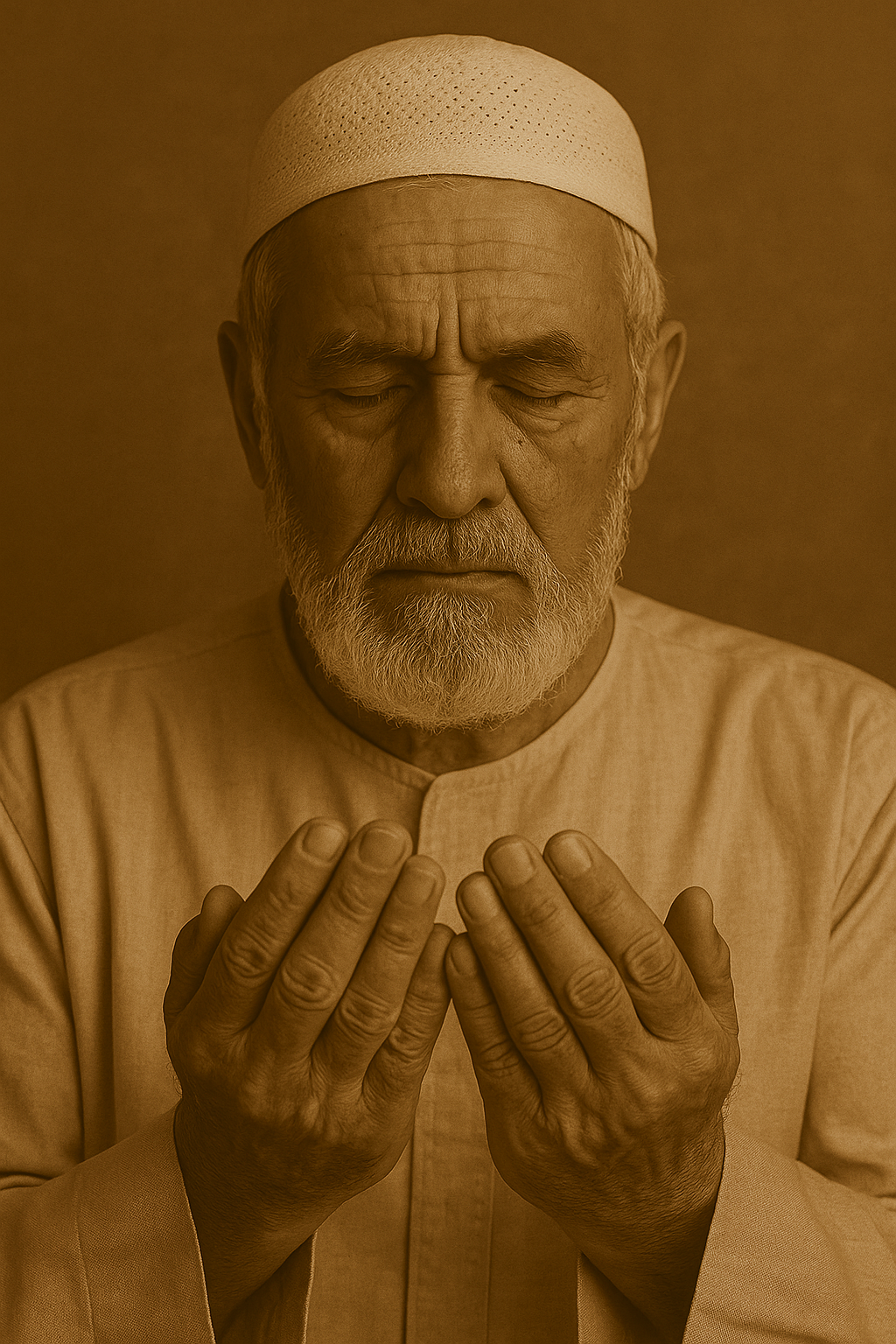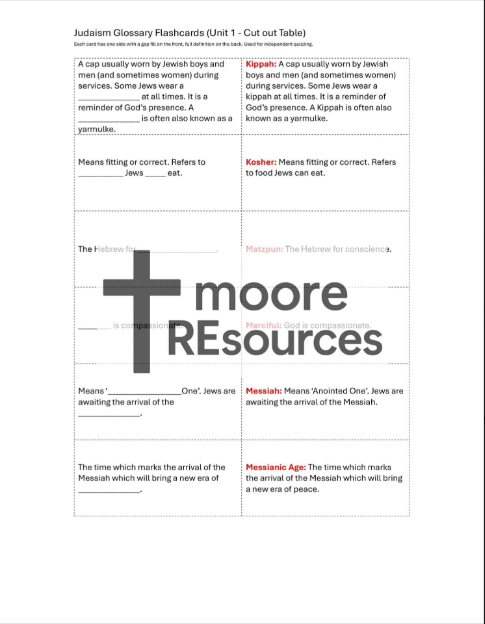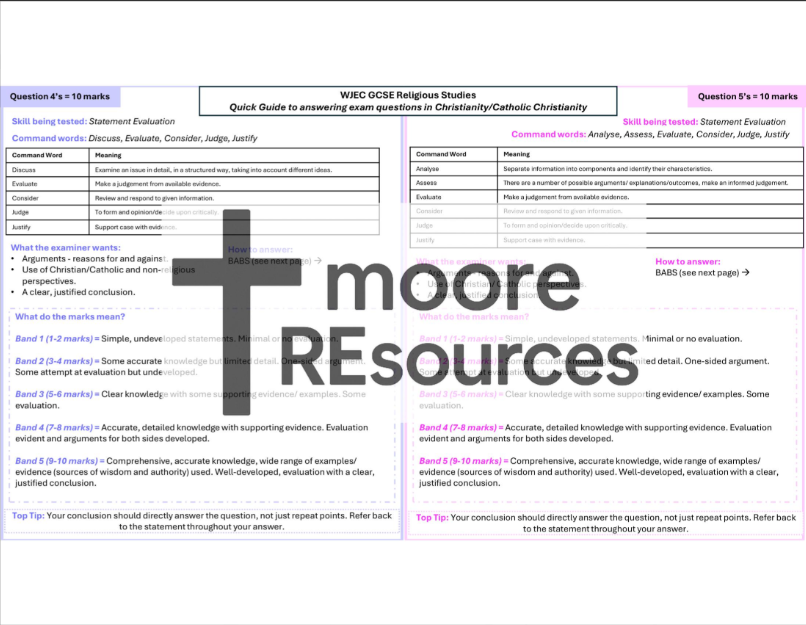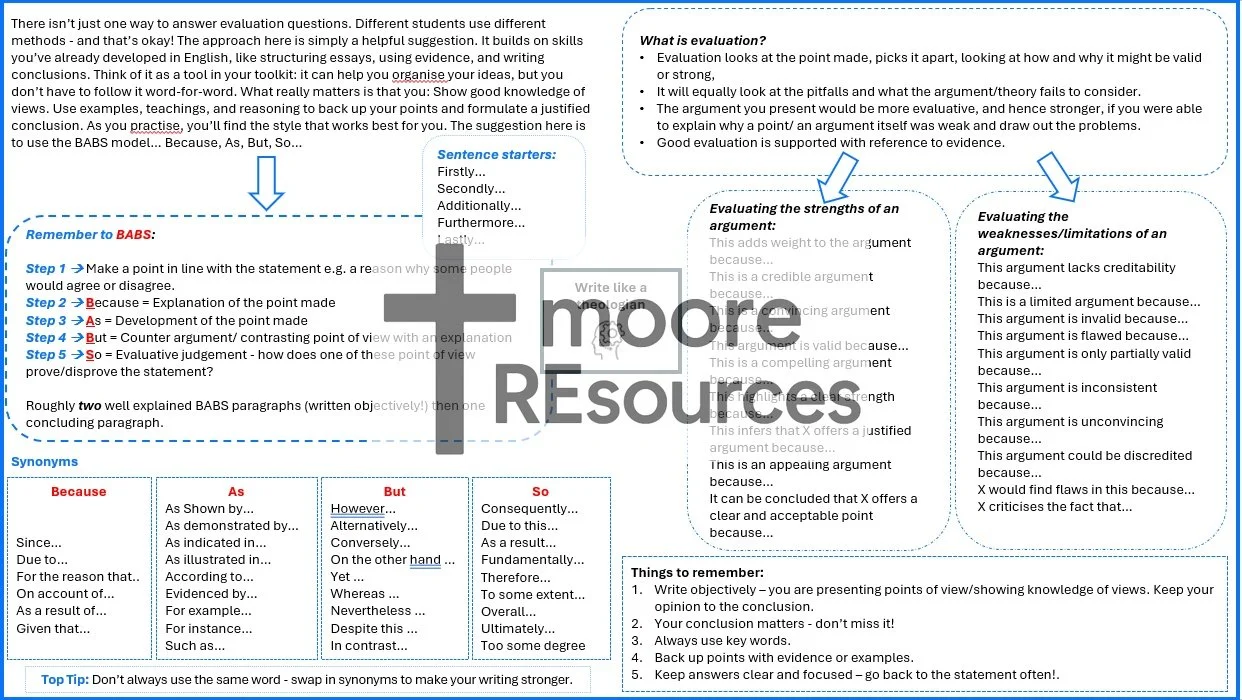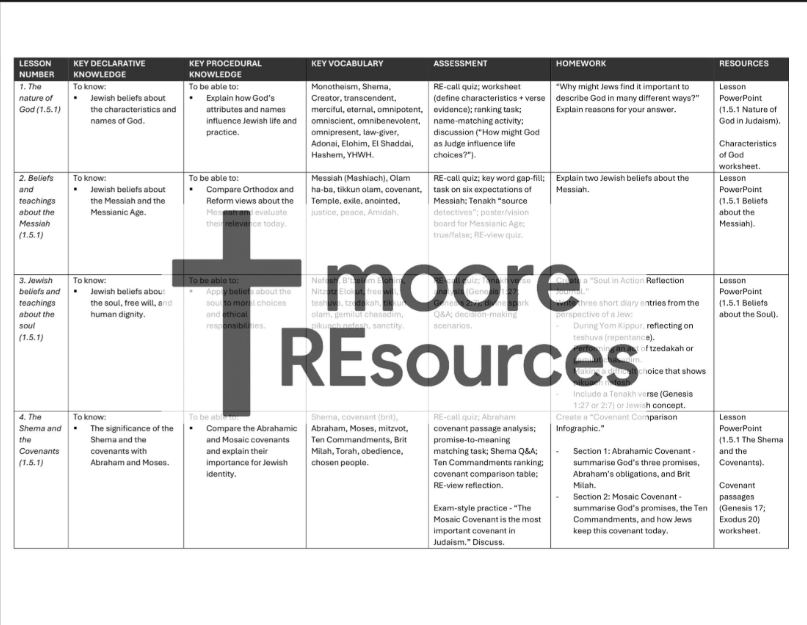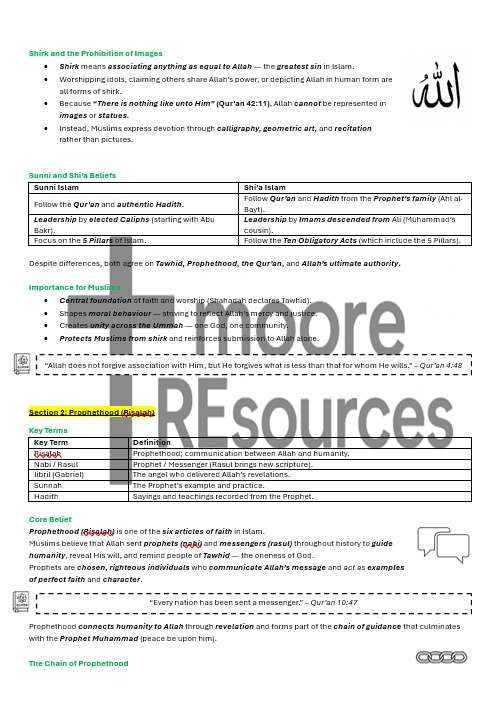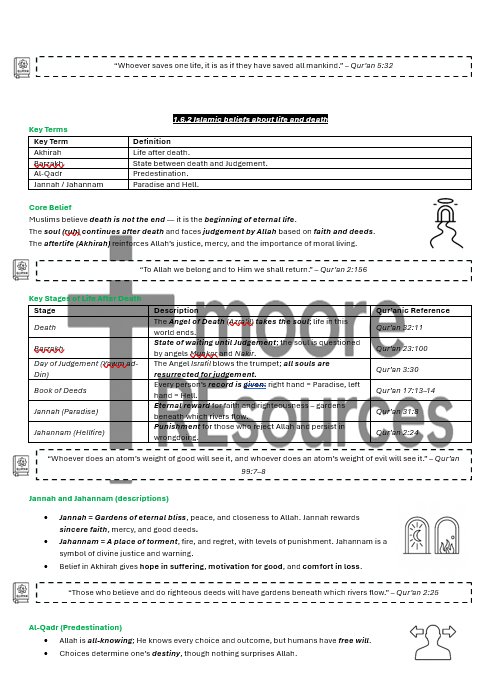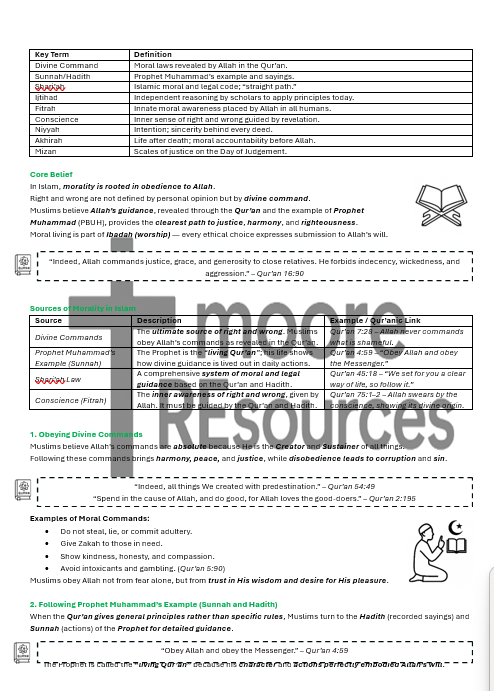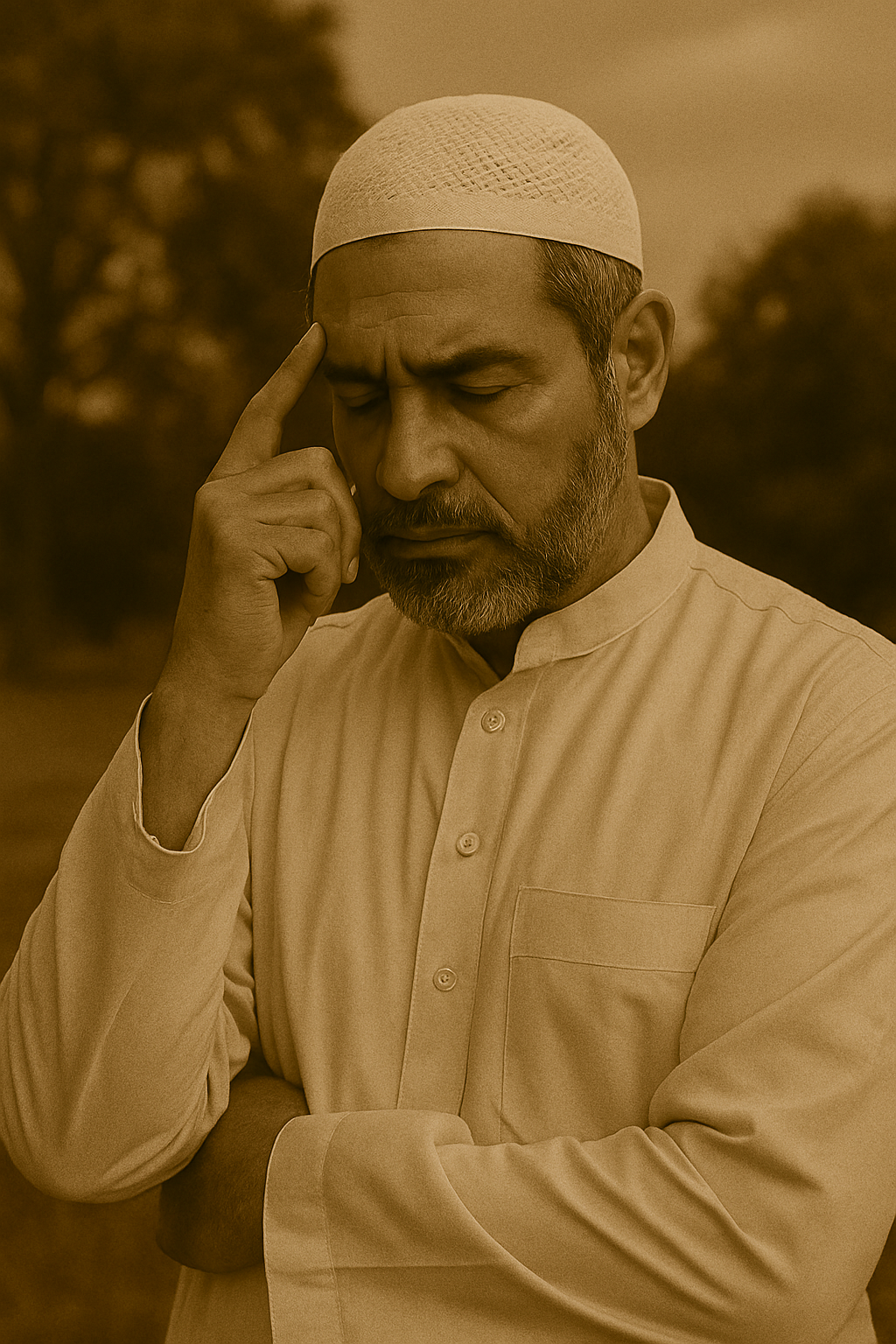 Image 1 of 4
Image 1 of 4

 Image 2 of 4
Image 2 of 4

 Image 3 of 4
Image 3 of 4

 Image 4 of 4
Image 4 of 4





1.72 Islam and Morality
Help students explore how Islamic teachings shape moral decisions and ethical living with this thought-provoking Lesson Pack for 1.72: Islam and Morality. Fully aligned with the WJEC Religious Studies 2025 specification, this resource introduces learners to key sources of Islamic moral guidance and the deep connection between ethical choices, religious duty, and belief in divine accountability.
Learners Will Understand:
Making Moral Decisions in Islam
Obedience to divine commands as the foundation of ethical behaviour
The example of the Prophet Muhammad as a model for personal conduct
Sharia law as a system of justice rooted in compassion, wisdom, and religious texts
The role of conscience in choosing right from wrong
Sources of Moral Guidance
The Qur’an and Hadith as central texts for understanding good character and moral responsibility
How Muslims apply these teachings to everyday moral challenges
Judgement and Moral Consequences
Belief in the Day of Judgement, where souls are held accountable for their actions
How belief in divine justice influences decisions in this life
The link between personal morality and the hope of reward in the hereafter
Suitable for:
WJEC GCSE Religious Studies (2025)
Islam units at KS4
Core RE, revision, and homework tasks
Cover lessons and remote learning
Help students explore how Islamic teachings shape moral decisions and ethical living with this thought-provoking Lesson Pack for 1.72: Islam and Morality. Fully aligned with the WJEC Religious Studies 2025 specification, this resource introduces learners to key sources of Islamic moral guidance and the deep connection between ethical choices, religious duty, and belief in divine accountability.
Learners Will Understand:
Making Moral Decisions in Islam
Obedience to divine commands as the foundation of ethical behaviour
The example of the Prophet Muhammad as a model for personal conduct
Sharia law as a system of justice rooted in compassion, wisdom, and religious texts
The role of conscience in choosing right from wrong
Sources of Moral Guidance
The Qur’an and Hadith as central texts for understanding good character and moral responsibility
How Muslims apply these teachings to everyday moral challenges
Judgement and Moral Consequences
Belief in the Day of Judgement, where souls are held accountable for their actions
How belief in divine justice influences decisions in this life
The link between personal morality and the hope of reward in the hereafter
Suitable for:
WJEC GCSE Religious Studies (2025)
Islam units at KS4
Core RE, revision, and homework tasks
Cover lessons and remote learning

